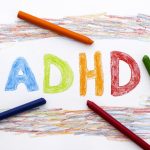FDA Warns Patients and Health Care Providers About Potential Risks Associated With Compounded Ketamine Products

Audience: Patients, Health Care Providers
There is increased interest in compounded ketamine products (including oral formulations) for the treatment of psychiatric disorders. When considering use of compounded ketamine products, patients and health care providers should know:
- Ketamine is not FDA approved for the treatment of any psychiatric disorder. FDA is aware that compounded ketamine products have been marketed for a wide variety of psychiatric disorders (e.g., depression, anxiety, post-traumatic stress disorder (PTSD), and obsessive-compulsive disorder); however, FDA has not determined that ketamine is safe and effective for such uses.
- Compounded drugs, including compounded ketamine products, are not FDA approved, which means FDA has not evaluated their safety, effectiveness, or quality prior to marketing. Therefore, compounded drugs do not have any FDA-approved indications or routes of administration. Although compounded drugs can serve an important medical need for certain patients when an FDA-approved drug is not medically appropriate, they also present a risk to patients and should only be used under the care of a health care provider.
- Use of compounded ketamine products without monitoring by a health care provider for sedation (sleepiness), dissociation (disconnection between a person’s thoughts, feelings, and sense of space, time, and self), and changes in vital signs (such as blood pressure and heart rate) may put patients at risk for serious adverse events.
- Known safety concerns associated with the use of ketamine products include abuse and misuse, psychiatric events, increases in blood pressure, respiratory depression (slowed breathing), and lower urinary tract and bladder symptoms. For FDA-approved ketamine (see Ketalar prescribing information), the expected benefit outweighs these risks when used at appropriate doses for FDA-approved indications and routes of administration.
- Despite increased interest in the use of compounded ketamine, we are not aware of evidence to suggest that it is safer, is more effective, or works faster than medications that are FDA approved for the treatment of certain psychiatric disorders.
Background
Ketamine hydrochloride (referred to here as “ketamine” interchangeably) is a Schedule III controlled substance that is FDA approved as an intravenous or intramuscular injection solution for induction and maintenance of general anesthesia. Ketamine, like many drug products, is a mixture of two mirror-image molecules, R-ketamine and S-ketamine (arketamine and esketamine, respectively). Spravato (which includes only the esketamine molecule), is approved as a nasal spray for treatment-resistant depression in adults and for depressive symptoms in adults with major depressive disorder with acute suicidal ideation or behavior (in conjunction with an oral antidepressant).
On February 16, 2022, FDA published a compounding risk alert describing the potential risks associated with at-home use of compounded ketamine nasal spray and several adverse event reports. The February 2022 compounding risk alert also provided information about Spravato, which is subject to a Risk Evaluation and Mitigation Strategy (REMS) as part of its FDA approval. A REMS is a drug safety program that FDA can require for certain approved medications with serious safety concerns to ensure the benefits of the medication outweigh its risks. The Spravato REMS requires esketamine to be dispensed and administered in medically supervised health care settings that are certified in the REMS and agree to monitor patients for a minimum of two hours following administration because of possible sedation and dissociation and the potential for misuse and abuse. Compounded ketamine products are not FDA approved for any indication, including psychiatric disorders, and are, therefore, not part of a REMS program. This does not mean compounded ketamine products are safer for patients. In fact, because compounded ketamine products are not subject to monitoring requirements under a REMS, they may be less safe.
Since the publication of the February 2022 compounding risk alert, FDA has become aware of increasing public interest in the use of sublingual and oral dosage forms of compounded ketamine for the treatment of psychiatric disorders. FDA understands that the ability to obtain such products through telemedicine platforms and compounders for at-home use may be attractive to some patients. However, the lack of monitoring for adverse events, such as sedation and dissociation, by an onsite health care provider may put patients at risk. Additionally, FDA has identified safety concerns associated with compounded ketamine products as discussed below. Furthermore, FDA has not established safe or effective dosing of ketamine for any psychiatric indication because ketamine has not been approved for these uses. These factors may place the patient at risk for serious adverse events, misuse, and abuse.
Potential Safety Risks Associated with Compounded Ketamine Products
Patients who receive compounded ketamine products from compounders and telemedicine platforms for the treatment of psychiatric disorders may not receive important information about the potential risks associated with the product. As previously noted, safety concerns that may be associated with ketamine products include, but are not limited to, risks of sedation, dissociation, psychiatric events or worsening of psychiatric disorders, abuse and misuse, increases in blood pressure, respiratory depression (breathing becomes slower and shallower and the lungs fail to exchange carbon dioxide and oxygen efficiently), and lower urinary tract and bladder symptoms. At-home administration of compounded ketamine presents additional risks because a health care provider is not available onsite to monitor for serious adverse outcomes resulting from sedation and dissociation.
In April 2023, FDA received an adverse event report of a patient who experienced respiratory depression after taking compounded oral ketamine outside of a health care setting for the treatment of PTSD. The patient’s ketamine blood level appeared to be twice the blood level typically obtained for anesthesia.
In addition to the potential risks associated with compounded ketamine products, patients and health care providers should be aware that information about use of these products is lacking. For example, FDA has not established safe or effective dosing of ketamine for any psychiatric indication. Furthermore, the dosages of the sublingual and oral compounded ketamine products marketed by compounders and telemedicine platforms may vary, which makes it challenging to predict which potential risks may be associated with these products. In addition to the concerns regarding the short-term use of compounded ketamine, the overall benefit-risk profile of ketamine for treatment of psychiatric disorders is unknown.
Conclusions
FDA is aware of increased interest in the at-home use of compounded ketamine products, including oral formulations, for the treatment of psychiatric disorders. Patients and health care providers should be aware that FDA has identified potential safety concerns associated with the use of compounded ketamine products from compounders and telemedicine platforms, including abuse and misuse, psychiatric events, increases in blood pressure, respiratory depression, and lower urinary tract and bladder symptoms. Home use of compounded ketamine products presents additional risk because onsite monitoring by a health care provider is not available. Ketamine is not FDA approved for the treatment of any psychiatric disorder, and additional clinical studies are needed to adequately investigate ketamine’s benefit-risk profile and safe-use conditions in the treatment of psychiatric disorders.
FDA encourages compounders, patients, and health care providers to report adverse events associated with compounded ketamine products to FDA’s MedWatch Adverse Event Reporting program.
- Complete and submit the report online at MedWatch: The FDA Safety Information and Adverse Event Reporting Program; or
- Download and complete the form, then submit it via fax at 1-800-FDA-0178.
Source: FDA





